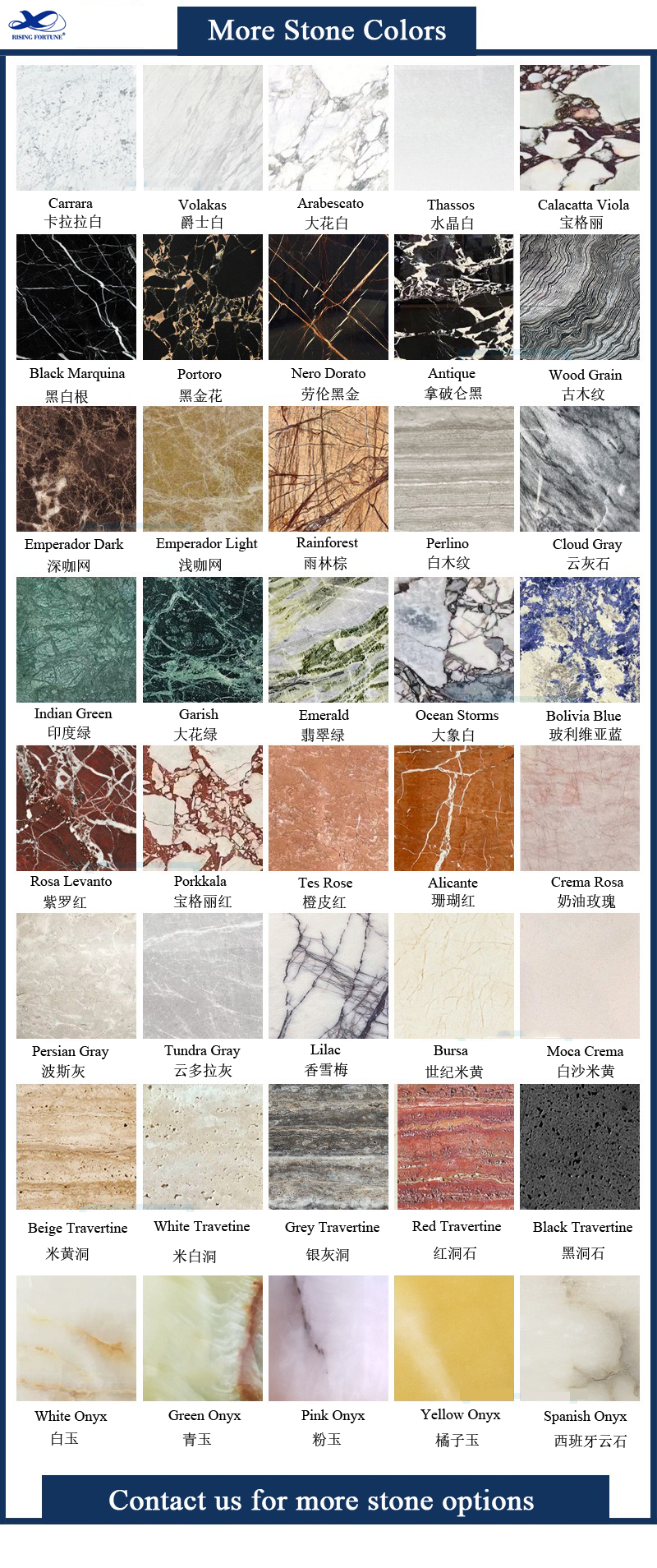Choosing the right stone for your interior design style can enhance the aesthetic appeal, functionality, and overall harmony of your space. Here’s a guide to selecting the best stone types for different design styles:
1. Modern/Contemporary Style
Key Features: Clean lines, minimalism, neutral tones, and sleek surfaces.
Recommended Stones:
- Polished Marble (Carrara, Statuario, Calacatta): Adds luxury and elegance with subtle veining.
- Quartz (Engineered Stone): Low-maintenance, available in solid colors or marble-like patterns.
- Granite (Polished, Honed): Sleek and durable, ideal for countertops in neutral tones.
- Onyx: Translucent and dramatic, perfect for backlit feature walls or bars.
Best Uses: Countertops, flooring, statement walls, and fireplace surrounds.
2. Rustic/Farmhouse Style
Key Features: Natural textures, warmth, earthy tones, and a lived-in feel.
Recommended Stones:
- Sintered Stone: Textured and rugged, great for flooring and fireplace surrounds.
- Travertine: Natural pits and warm tones suit rustic kitchens and bathrooms.
- Limestone: Soft, matte finish that ages beautifully.
- Flagstone: Irregular shapes for patios, pathways, or feature walls.
Best Uses: Flooring, backsplashes, outdoor spaces, and fireplace facades.
3. Classic/Traditional Style
Key Features: Elegance, symmetry, rich details, and timeless appeal.
Recommended Stones:
- Marble (Carrara, Emperador, Nero Marquina): Classic veining for floors, countertops, and columns.
- Granite (Leathered or Brushed Finish): Adds depth without being too glossy.
- Soapstone: Smooth, matte finish ideal for traditional kitchens.
- Terrazzo: Vintage yet sophisticated for flooring and countertops.
Best Uses: Grand staircases, fireplace mantels, wainscoting, and formal dining areas.
4. Industrial Style
Key Features: Raw materials, exposed structures, and a utilitarian vibe.
Recommended Stones:
- Concrete (Polished or Stained): Mimics industrial lofts, great for countertops and floors.
- Basalt or Bluestone: Dark, dense, and durable for tabletops and flooring.
- Reclaimed Brick or Stone: Adds a weathered, warehouse-like texture.
- Black Granite: Sleek yet rugged for kitchen islands.
Best Uses: Countertops, flooring, exposed feature walls, and bar tops.
5. Scandinavian Style
Key Features: Light, airy spaces, natural wood, and simplicity.
Recommended Stones:
- Light Marble (Carrara): Soft veining complements neutral palettes.
- Quartz (White or Light Gray): Minimalist and easy to maintain.
- Pebble Tiles: Natural texture for bathroom floors or shower walls.
Best Uses: Kitchen countertops, bathroom vanities, and fireplace surrounds.
6. Bohemian/Eclectic Style
Key Features: Bold colors, mixed patterns, and global influences.
Recommended Stones:
- Mosaic Tiles (Moroccan, Terrazzo): Vibrant and textured for backsplashes.
- Semi-Precious Stones (Lapis Lazuli, Malachite): Luxe accents in countertops or decor.
- Tumbled Marble: Soft, aged look for a relaxed vibe.
Best Uses: Feature walls, tabletops, and decorative inlays.
Final Tips for Selection:
- Consider Durability: High-traffic areas need hard stones like granite or quartz.
- Maintenance: Marble requires sealing; quartz is low-maintenance.
- Lighting: Dark stones absorb light; light stones make spaces feel larger.
- Budget: Engineered quartz is cost-effective; natural stones like marble are premium.
By matching the stone to your design style, you can create a cohesive and stunning interior that reflects your personal taste while ensuring practicality. Let me know if you need specific recommendations for a project!
If you are interested in our marble/ onyx/ terrazzo stones, and want to know more information, pls email to: may@risingfortunetrading.com, or contact my WhatsApp/ WeChat: +86 18150018770
